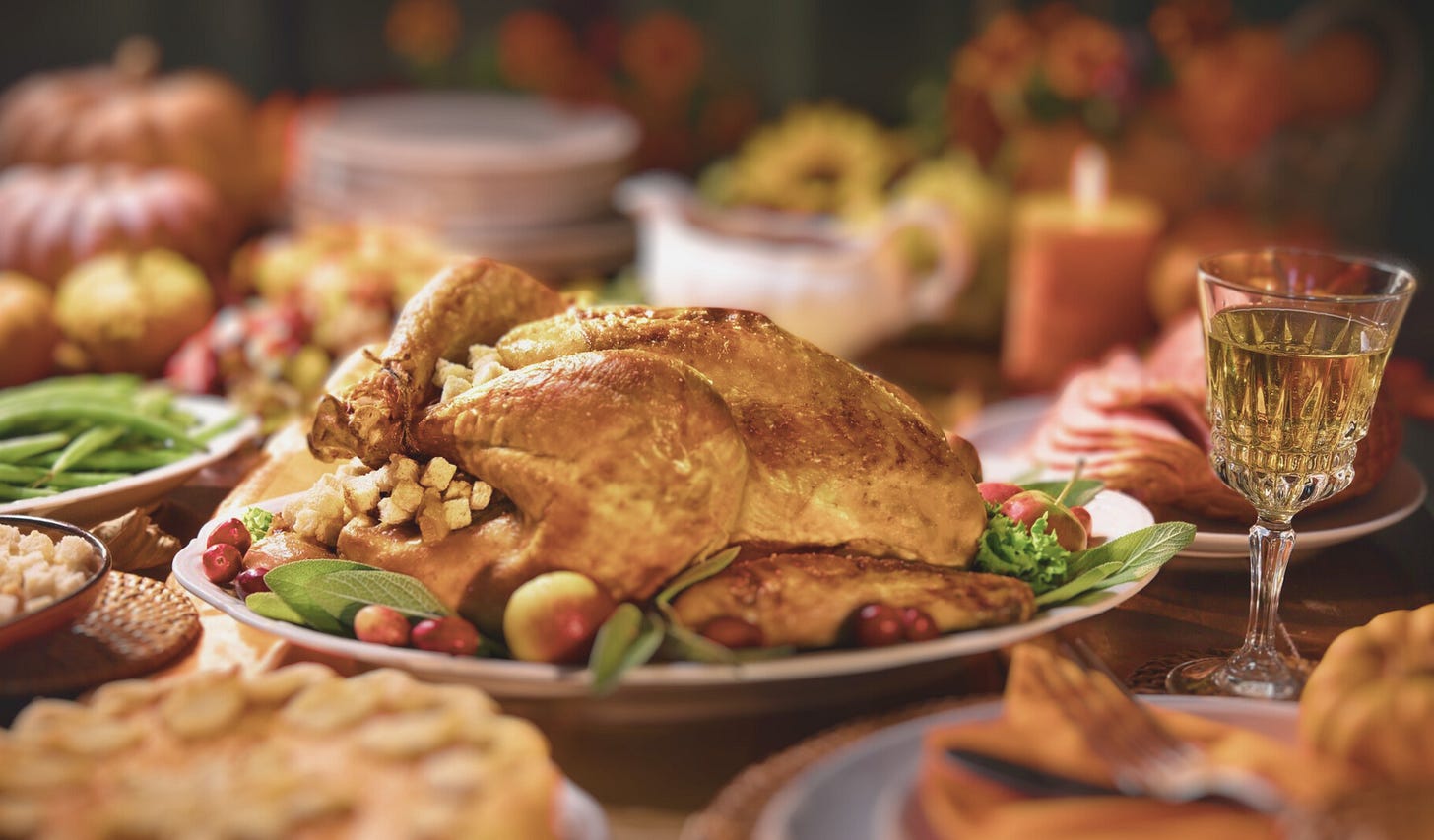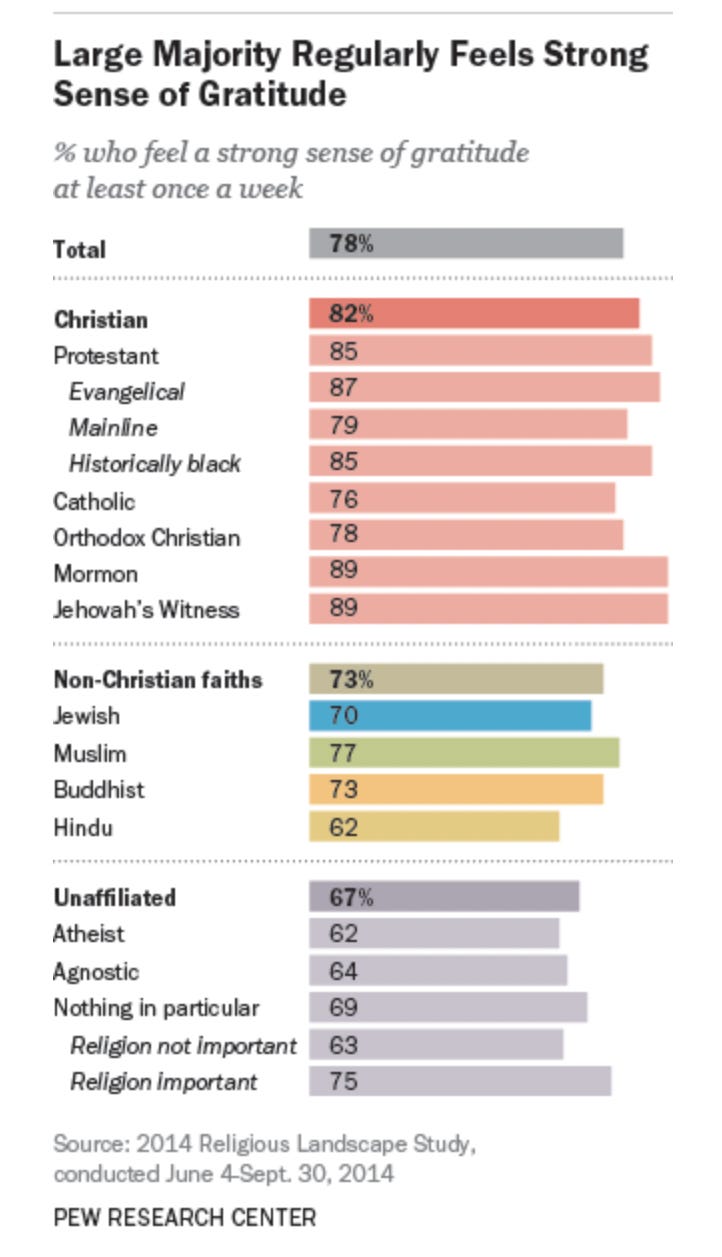Lose the Attitude of Gratitude
Is gratitude just an attitude? If you believe the latest scientific research, the answer is “not exactly.”
Top medical institutions have found that gratefulness is good for your health. According to UCLA Health, a thankful mindset positively influences biomarkers that are associated with the risk for heart disease. In fact, one study found that keeping a gratitude journal can significantly drop diastolic blood pressure. The American Psychological Association also found that a grateful heart often means a healthy heart, noting research from the University of California at San Diego, which concluded that increased gratitude was associated with “better mood, better sleep, less fatigue and lower levels of inflammatory biomarkers related to cardiac health” in patients.
With all this research available, it is clear that thankfulness is more than just an emotion or disposition. Yet, our culture treats thankfulness as a dependent feeling related to our personal circumstances. Even the old saying about having an “attitude of gratitude” fails to accurately represent the core of what thankfulness should mean in our lives.
Plus, Americans often fail to distinguish between expression and existence. For example, a 2023 study found that the average American adult expresses gratitude more than 2,200 times each year. That means that on an average day, Americans say the phrase “thank you” at least six times. This tracks with the culture of many places in the country. We can especially be polite in the heartland. However, just because you express words of gratitude, doesn’t mean thankfulness exists in your heart.
Gratitude is, ultimately, a product of humility. The less pride you have the more gratitude you naturally experience. If you are convinced that every blessing in your life is a result of your own hands, then you will likely feel more satisfaction than gratitude – two more ideas that are not one in the same.
While I know it can be a controversial subject in some circles, I believe that God created mankind with free will. This means that individuals largely possess agency over their own choices and actions. Sadly, those who believe in freedom and personal responsibility often wrongly fail to understand the relationship between supply and stewardship.
James says, “Every good gift and every perfect gift is from above, coming down from the Father of lights with whom there is no variation or shadow due to change. Whatever is good and perfect is a gift coming down to us from God our Father…” Everything good in this life comes from God; our supply comes from the Lord. However, that doesn’t mean His blessings don’t need stewardship. In fact, that is the quintessential role of humanity in this world.
In Genesis, God placed man in the garden to work and tend to His creation (Genesis 2:15). And still in the New Testament, we are told to “use whatever gift you have received to serve others, as faithful stewards of God’s grace in its various forms” (I Peter 4:10). Both spiritually and physically, the Bible makes it clear that it is God’s job to create and ours to cultivate.
One of the greatest pitfalls of the modern man is to either reject responsibility for one’s own choices completely or to believe that all the blessings in his hands were made solely by his own toil. It is through the faithful diligence of stewardship that we find satisfaction, but it is only through the recognition of God as our ultimate supplier of needs that we experience true gratitude.
Colossians 3:15 says, "Let the peace of Christ rule in your hearts, since as members of one body you were called to peace. And be thankful." Before we can be thankful, we must be submitted.
But if you need evidence beyond Scripture, objective research supports this biblical truth. Not only is thankfulness a clear benefit to our life, its existence is far more prevalent among believers. For example, one study found that Christians report a significantly higher sense of gratitude when compared to atheists. A 2015 Pew Research study found that 82 percent of Christians indicate feeling a sense of gratitude at least once a week, while just 62 percent of atheists report that feeling weekly. Christians also reported higher levels of gratitude than other faith groups.
When the circumstances are right, it’s easy to feel grateful. But it’s much more difficult to take gratefulness from a perception to a practice in our daily life. Personally, I believe this practice begins with submission to the Creator of all good things, which then urges us to steward and cultivate the blessings He has put in our life.
My hope is that this season, I can make Thanksgiving more than just a holiday – I hope to make it a way of living. That would truly be something worth celebrating.




